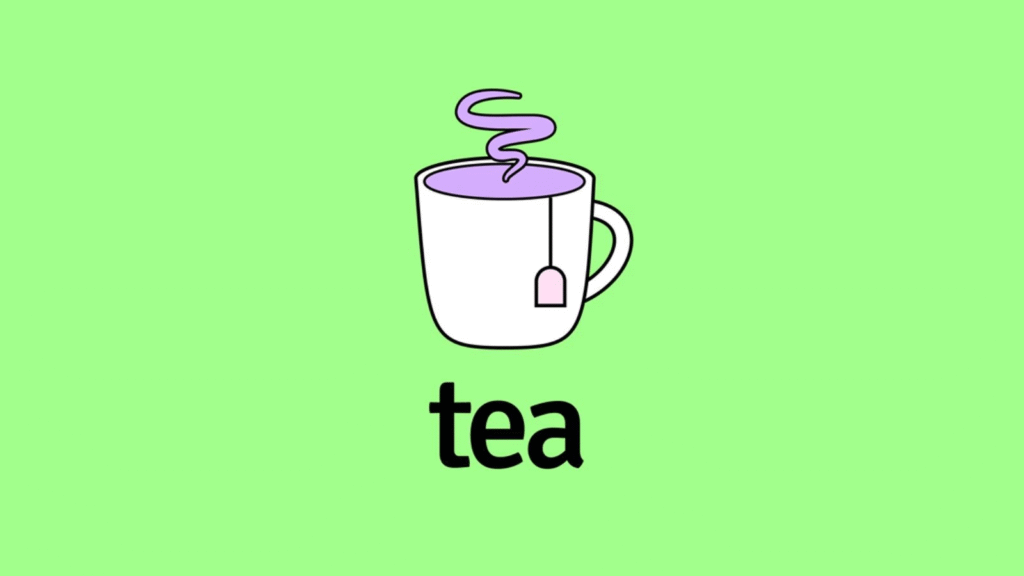In a deeply concerning development for privacy in the online dating world, the Tea app image breach has shaken user trust after the women-focused dating platform revealed that over 72,000 user images were stolen in a recent security breach.
Tea, a rising app designed to create a safer, more empowering space for women in online dating, confirmed that its image database was accessed by unauthorized parties.
The company admitted the breach affected both current and former users, with the compromised content mainly consisting of profile photos and uploaded media files.
This incident puts the spotlight back on data security within dating apps—where personal identity and visual information are central to the user experience.
Also check the article on the Allianz Life says majority of US customers’ data stolen in hack that stemmed from a breach in a vendor’s file transfer system.
Table of Contents
The Breach: What Happened?

The Tea app image breach occurred when malicious actors exploited a vulnerability in the app’s media storage system. According to the company’s initial statement, an outdated third-party cloud integration was to blame. This vulnerability allowed attackers to gain access to image files stored outside the app’s core system.
Tea’s cybersecurity team detected unusual activity on its servers and quickly traced it back to unauthorized data downloads. Upon further analysis, it was discovered that at least 72,000 unique images had been exfiltrated from the system.
The breach was contained within 48 hours of discovery, but the damage was already done.
What Was Compromised?
The Tea app image breach specifically targeted images rather than broader user account information. The stolen content reportedly includes profile pictures, image-based messages, and privately uploaded media that users shared within chats.
While no credit card data or passwords were accessed, the loss of image-based information poses a serious privacy risk. Photos used on dating apps are often personal, sometimes intimate, and rarely shared elsewhere. Their exposure could result in identity misuse, online harassment, or image-based abuse.
Company’s Response
In the wake of the Tea app image breach, the company issued an apology and promised swift action. It has already begun notifying users whose data was included in the breach and is offering identity protection services at no cost to affected individuals.
Tea has also launched a full-scale audit of its infrastructure and has engaged independent cybersecurity consultants to assist in a comprehensive review.
As part of its response, the company will migrate image hosting to a more secure, encrypted system and introduce stronger access controls for all media.
The company also stated it would soon roll out new privacy tools that give users more control over who sees their content and how long it remains stored.
Impact on Users
For the app’s user base, mostly women seeking a more secure dating experience, the Tea app image breach is a serious violation of trust. Many users joined the platform because it marketed itself as a safer, women-first alternative to traditional dating apps.
Knowing that private images may now be circulating without consent has caused anxiety and frustration within the community.
Some users have taken to social media to express concerns about the possible misuse of their images. Others are questioning whether to continue using dating apps altogether.
Tea has encouraged users to report any suspicious activity or unauthorized reposting of their photos online.
Why Dating Apps Are High-Value Targets?

The Tea app image breach is not an isolated incident. Dating platforms have increasingly become targets for cybercriminals due to the type of content and personal data they hold.
From images and bios to location data and messaging history, these apps offer a treasure trove of sensitive information.
In this case, the focus was on media—often the most personal and emotionally charged part of a user’s profile. Unlike stolen passwords, leaked images cannot be changed or reset. Once an image is leaked online, control over that content is essentially lost.
Legal Ramifications
Following the Tea app image breach, legal experts suggest the company may face regulatory scrutiny under data protection laws such as the California Consumer Privacy Act (CCPA) and potentially the GDPR, if any European users were affected.
Civil lawsuits are also a possibility, especially if users feel they were not adequately informed or protected. Legal questions are likely to center around whether Tea took reasonable precautions to secure image data and how quickly it responded to the breach once discovered.
Tea maintains that its response followed industry best practices, but the coming weeks may bring more clarity as investigations unfold.
The Role of Cloud Storage
Many image breaches stem from poor cloud storage configurations. In the Tea app image breach, the company confirmed that the compromised data was stored on a third-party cloud platform, separate from the app’s main database.
This separation is common practice, especially for media-heavy applications, but it also increases the number of attack vectors. If access controls on cloud folders are misconfigured or outdated, attackers can exploit them even without breaching the app itself.
Tea’s decision to overhaul its media infrastructure was likely based on this architecture flaw.
Rebuilding Trust
To recover from the Tea app image breach, the company will need to do more than patch systems. Trust in digital platforms—especially dating apps—is fragile and hard to rebuild once broken.
Tea’s leadership has publicly stated their commitment to regaining user confidence, citing improved transparency, increased user control, and regular security audits as steps toward that goal.
They’ve also pledged to provide clearer privacy settings, including automatic deletion of old image content and an option for users to manually delete all stored media on demand.
However, the damage done may linger for many users, particularly those whose images have been stolen and may resurface in unwanted contexts.
Lessons for Other Platforms
The Tea app image breach is a warning sign for other apps in the dating and social networking sectors. As users increasingly share personal media online, the responsibility to protect that content has never been greater.
App developers must take proactive steps to safeguard user media—including encryption at rest, secure APIs, and stricter access control policies. They should also educate users about potential risks and provide tools that empower users to manage their data more effectively.
Community Reaction
The community’s response to the Tea app image breach has been swift and vocal. While some users have expressed appreciation for the company’s transparency, others feel more could have been done to prevent the breach in the first place.
Discussions around app safety, digital consent, and online privacy have gained momentum as a result. Some users have begun demanding better privacy-by-design features from all dating platforms, not just Tea.
It’s likely that public pressure will lead to broader changes across the dating app industry in the months ahead.
Moving Forward
As the Tea app image breach continues to make headlines, it’s clear that user privacy in the dating world is more critical than ever. Tea has pledged to learn from this mistake, but its ability to recover will depend on actions—not just words.
Dating apps face a delicate balance: they must provide engaging experiences while also protecting their users’ most personal data. Failing to do so not only invites technical consequences but also erodes the emotional trust at the heart of digital connection.
Conclusion
The Tea app image breach serves as a stark reminder that no platform is immune to cyber threats, no matter how well-intentioned or niche its audience. For Tea, this incident is a serious test of its values, leadership, and long-term survival in a competitive market.
As the company works to rebuild its infrastructure and reputation, users across the world will be watching closely—demanding transparency, security, and above all, respect for their digital privacy.

